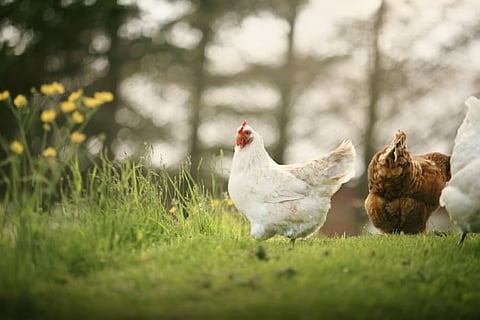Small Investments That Pay Off Big in Flock Health and Productivity
Healthy, productive birds are at the heart of any successful poultry operation. From small family farms to large-scale facilities, flock performance is tied closely to the everyday choices made in their care. Overlooking small details—like how water is delivered or where hens choose to lay—can gradually lead to lower yields and added stress on the entire system.
One of the most overlooked tools, the poultry feeder, plays a quiet but central role in shaping flock health. Simple changes to how and where feeders are used often lead to better feeding behavior, less aggression, and more consistent growth. When combined with thoughtful adjustments to lighting, water access, and nesting setups, these small investments can drive meaningful improvements across the board.
Smart Placement and Design of Poultry Feeders
A feeder does more than hold food—it shapes how birds eat and interact. When birds can access feed comfortably, they eat with less tension, leading to steadier growth and better egg production. Poor access creates stress, which quickly impacts performance. Adding scratch guards keeps feed cleaner and reduces waste.
Proper spacing between feeders helps avoid crowding, while adjusting height to match the birds’ size supports natural feeding behavior. Even simple tweaks, like repositioning feeders or choosing better designs, can lead to calmer flocks and more consistent results. Thoughtful changes to feeder setup often return strong gains in health and productivity.
Keeping Birds Hydrated with Smarter Water Systems
Water plays a central role in maintaining flock health, yet it’s often treated as an afterthought. Upgrading to cleaner, more efficient systems—like waterers with anti-roost tops—reduces contamination and helps prevent illness. Birds stay more comfortable when water is kept at a steady temperature, which simple insulation can support during hot or cold weather.
Building on these improvements, on-demand water systems provide clean hydration only when needed, minimizing bacterial growth and waste. Pairing these systems with regular checks on water quality creates a dependable source birds can access throughout the day. Healthier hydration habits often lead to calmer, more productive flocks.
Nesting Box Tweaks That Boost Egg Quality and Output
Better nesting boxes can improve both the number and quality of eggs. Hens are more comfortable and secure when boxes are placed in the right spots, encouraging them to lay eggs regularly. Sloped roofs stop dirt from piling up and help prevent eggs from breaking. Using soft bedding also helps hens behave naturally and keeps the eggs safer.
A calm space to lay eggs helps hens stay focused. Reducing noise and activity around nesting boxes lets hens feel safe, which improves laying behavior. Checking nesting areas regularly for cleanliness and privacy helps with egg collection and keeps production running smoothly.
Dust Bath Areas for Cleanliness and Calmer Birds
Chickens love dust bathing—it’s a natural habit that keeps them clean and helps manage pests. Providing special areas for this not only helps their feathers stay in good shape, but also gives them a healthy way to express natural behaviors. This reduces stress and common issues like feather pecking.
Setting up separate spots for dust bathing makes it easier for birds to take part without fighting over space. This creates a more peaceful group dynamic. Keeping these areas clean and easy to reach improves their usefulness and supports a happier, healthier flock.
Lighting Tweaks That Guide Laying and Daily Activity
Lighting plays a big role in how chickens behave and lay eggs. Getting the timing right helps all the birds reach maturity around the same time, making it easier to plan things like breeding and egg collection. Adjusting how long the lights stay on affects the birds' hormones, which in turn shapes their laying patterns and boosts egg output.
Where you put the lights matters too. Soft, even lighting helps keep birds calm. Bright or flickering lights can make them anxious. Slowly increasing and decreasing light levels throughout the day helps them adjust naturally. Checking lighting conditions often can lead to better comfort and stronger performance from the flock.
Small, consistent choices shape healthier, more productive flocks. Moving a feeder, adjusting light levels, or creating cleaner dust bath areas might feel minor, but these actions reduce stress and support natural behaviors. Thoughtful placement of waterers and nesting boxes adds comfort and improves daily routines for the birds. Over time, these simple changes build a stronger, more efficient operation. Investing attention in the details pays off with better egg quality, steadier growth, and fewer health problems. Success doesn’t always require a major overhaul—just a willingness to notice what’s working, make small improvements, and let the flock respond in kind.
Inspired by what you read?
Get more stories like this—plus exclusive guides and resident recommendations—delivered to your inbox. Subscribe to our exclusive newsletter
Resident may include affiliate links or sponsored content in our features. These partnerships support our publication and allow us to continue sharing stories and recommendations with our readers.

